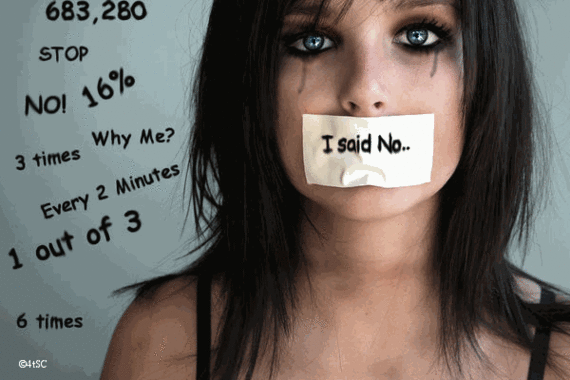
An Interview with Domestic Violence Expert Dana Lockhart
As online dating becomes the primary way people meet for the first time, Siren is partnering with Dana Lockhart, head of Seattle Police Department's Domestic Violence Support Team on a series of articles to keep our community aware, empowered and focused on healthy interpersonal dynamics. This installment is an interview with Dana about the connection many advocates are beginning to draw between intimate partner violence and traditional online dating apps.
* * * * *
Susie: Since the high-profile case of Ingrid Lyne, the Seattle area mom who was found murdered after an online date, many sources in the media are linking online dating to increased violence against women. In your experience, do you think this is the case?
Dana: I have no reason to believe that domestic violence is happening at an increased rate since people started using online dating apps. However, I do have a theory that the timeline of unhealthy or unsafe relationships are possibly speeding up.
Years ago I used to teach a "Domestic Violence 101" class to new DV Advocates that used the analogy of a first date to explain the timeline of an abusive relationship. I would say, "if your date showed up on your doorstep with a dozen roses and then promptly proceeded to punch you in the face, would you go out with him/her again?" I would always get a resounding "NO!" from my students. And from there, I would begin to explain the theoretical nature of domestic violence; how it can take years of power and control tactics (such as isolation, threats, manipulation, etc.) before the abuser will use physical violence as a means to control their partner.
This is part of what makes it so hard for survivors to leave -- because there is a long, deep history together that involves kids, love, fear, intimidation, future promises, finances, etc.
In the last year however, I have spoken to some DV Advocates who are noticing a new trend. They are seeing women on their caseloads getting physically assaulted much earlier in the relationship, and the physical abuse is sometimes more violent (in the early stages of a relationship). Advocates have also told me that many of these women have met their abusive partners online. With the undeniable prevalence of new relationships starting on dating sites, (One-in-five 18- to 24-year olds now report using mobile dating apps- Pew Research) it's hard for me not to draw parallels between the increased timeline in a dangerous relationship and the increase of online dating.
Susie: It's horrible to think that the very apps so many of us use to try to form connections with other human beings could also be contributing to increased violence against women. Compared with offline ways of meeting new people, do you think there is anything specific about the traditional online dating model that magnifies the potential for violence?
Dana: From my perspective, traditional online dating platforms have the potential to reinforce the cultural norms that are the root of gender based violence. For example, when a user is given the opportunity to "shop for dates" solely based on appearances, the narrative of entitlement, objectification and ownership over women's bodies is reinforced.
Susie: Totally. This is something we've always felt too, and why we've worked to dismantle the "shopping for humans" dynamic with Siren. Beyond the superficiality of these initial interactions...how do you think these dynamics are playing out once people have matched with someone, or decide to meet in person?
Dana: Gender-based violence preys on vulnerabilities. Most survivors I've worked with are some of the strongest people I've ever met. However with forced isolation and oppressive threats, even the strongest person can be left feeling vulnerable. When dating online, people let their guards down easier and faster, oftentimes putting themselves in vulnerable situations they wouldn't normally be in with someone they've just met. With the prevalence of sharing intimate photos, people may be offering their date additional tools for abusive harassment.
Also, gender-based violence thrives on the idea of the "perfect date". People who become abusive in their relationships often start out as that perfect (too perfect!) person that will pour on the charm, thick. Online dating offers a platform to create a persona of perfection, including only the most flattering information. And with less early-on, face-to-face interactions, someone is less likely to be able to listen to instincts before falling hard for someone.
And finally, gender-based violence relies on oppressive silence. If an abuser can make their victim feel they don't have a voice to speak in opposition, they've effectively gained control over that person. Online dating creates an environment of "crazy-making" where someone is labeled "paranoid" for speaking up and asking for safer and/or more respectful methods of getting to know each other.
Susie:This gives us a lot to chew on. How would you recommend we take a proactive stance toward prevention? Is there a way that we as individuals can safely challenge these toxic cultural dating dynamics and help change the narrative?
Dana: As I said before, I'm not suggesting that online dating is creating more violence in relationships. I believe that the larger culture of misogyny, inequality, misinformation about healthy relationships and systemic oppression continues to reinforce the use of violence in relationships. However, an essential element of prevention is the undoing of the cultural and social norms in which gender based violence thrives. And when it comes to online dating, users (both men and women) have the opportunity to change the game.
Susie: Thank you so much for your time and engaging this ongoing conversation, Dana!
* * * * *
Dana's first piece for this series, a list of red flags and safety tips for online dating may be found here.